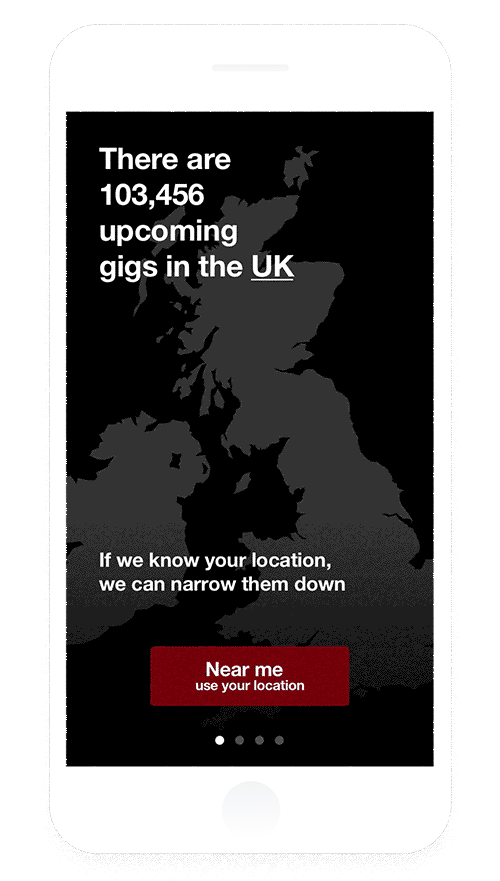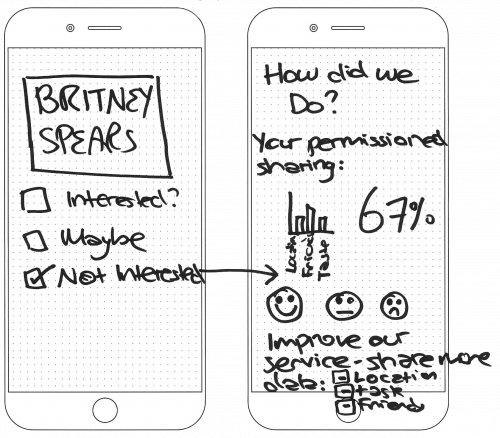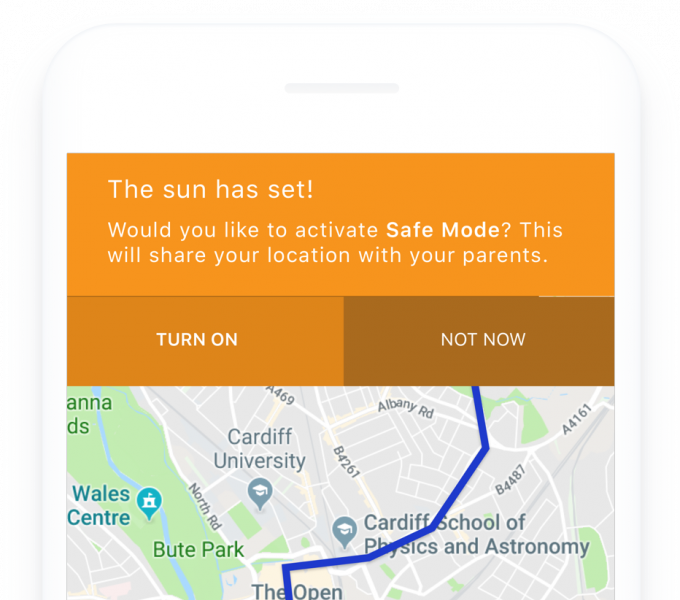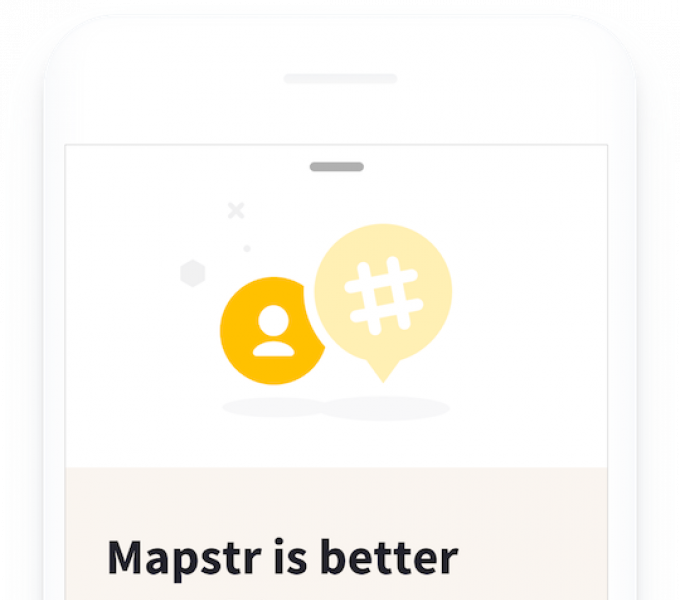Building powerful narratives around value exchange
The way apps engage with people about data use can be quite cold and formal. What if it was more natural, more familiar, more relevant and human?
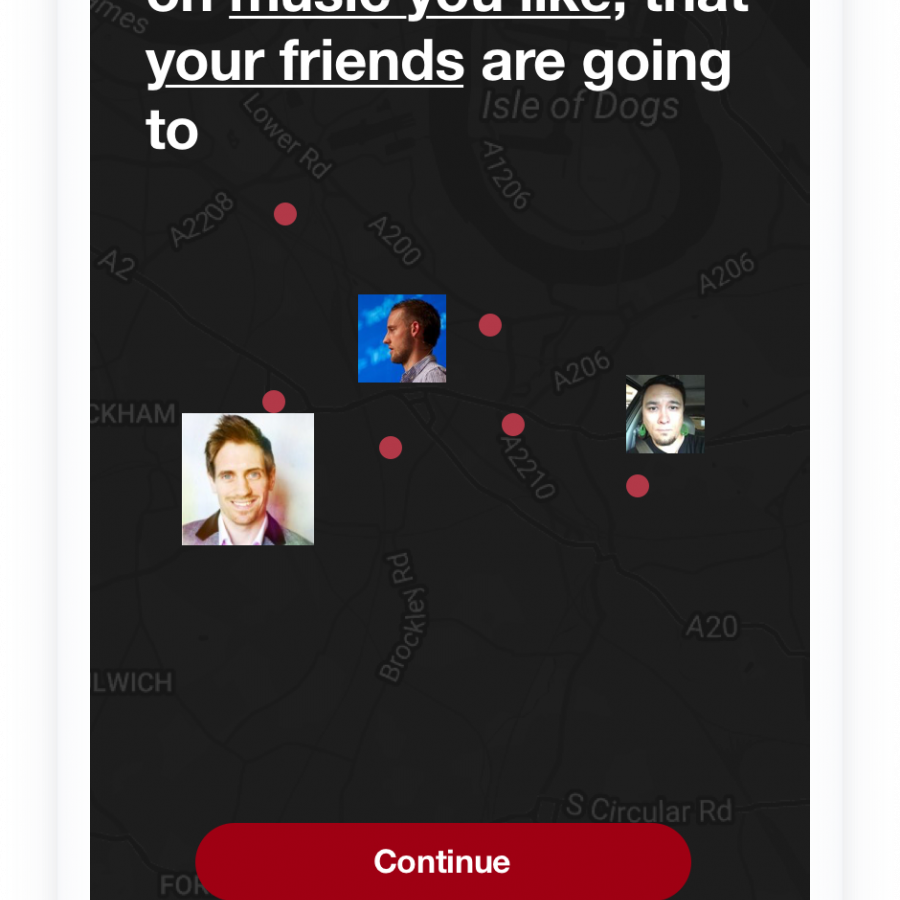
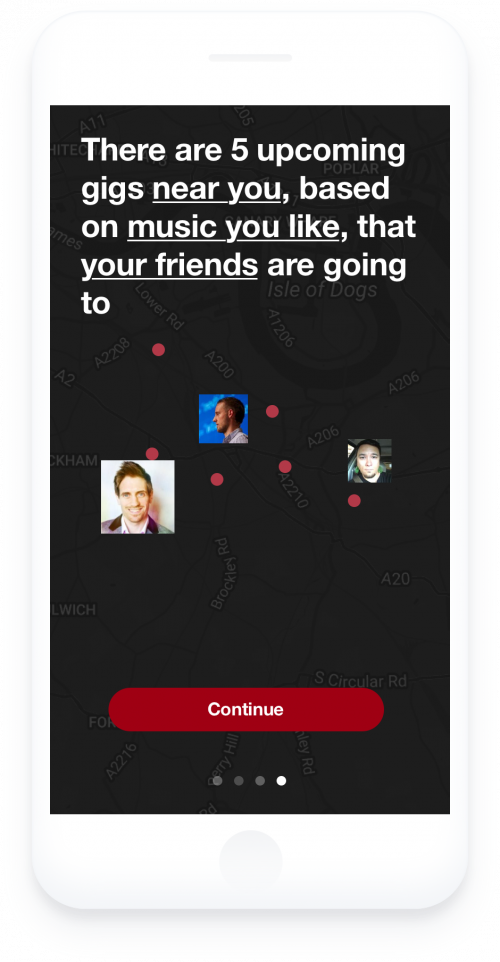
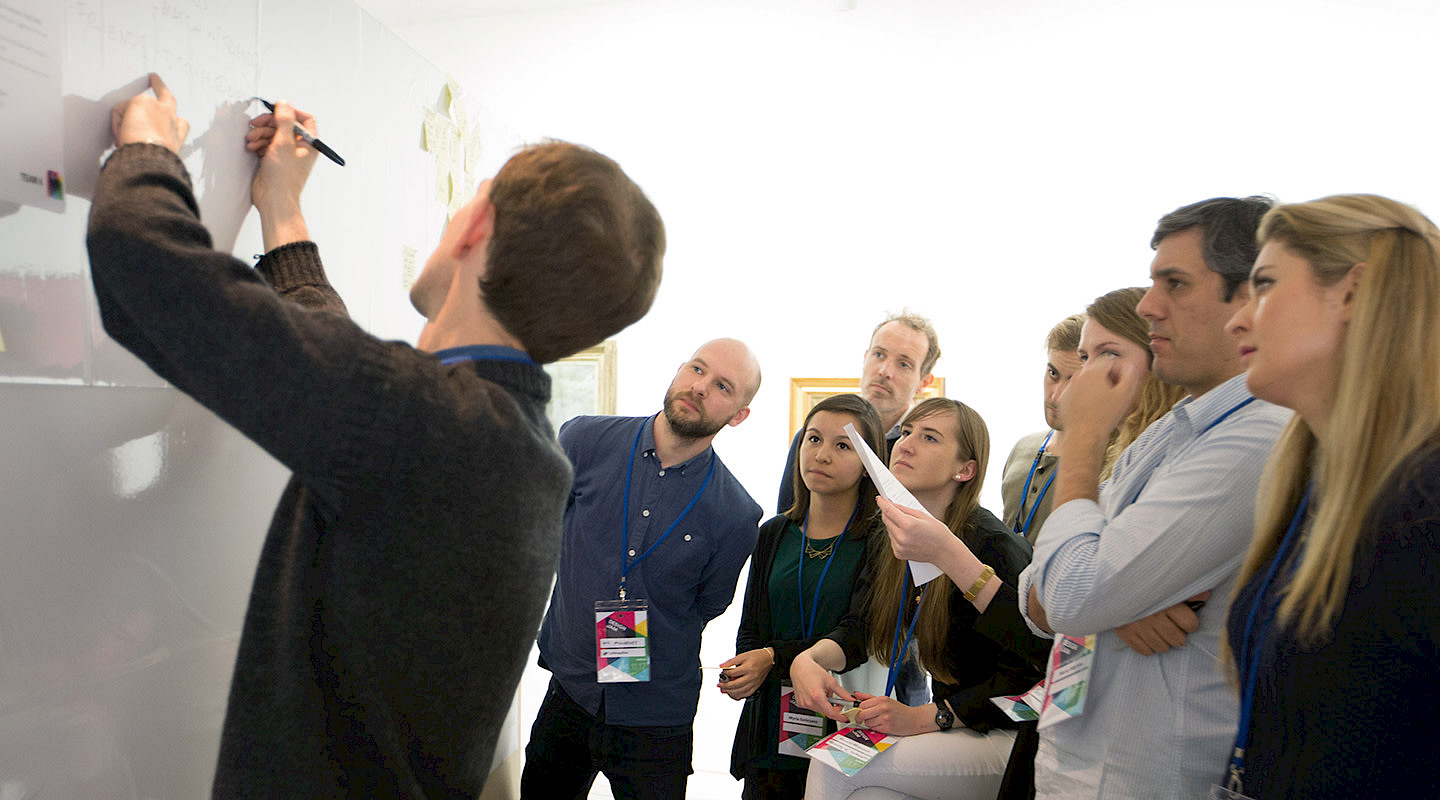
Through an enjoyable, step-by-step on-boarding process, Fanfare shows people how their personal data can help the app provide better recommendations. The conversational search string, alongside the clear visual cues of ever-decreasing dots on a map, helps people see the value exchange of their data, and more personalised results.
- Location data narrows down the search to your geographical location
- Connecting to a 3rd party music service personalises the search by music taste
- Connecting through Facebook identity helps to connect friends with similar tastes and locations
- A personalised set of suggestions are displayed as a result of the exchange of data
The contextual nature of this consent flow makes sharing data feel natural, as people can see how what they give will help them get what they like most. It's a powerful way to cultivate and foster trust.
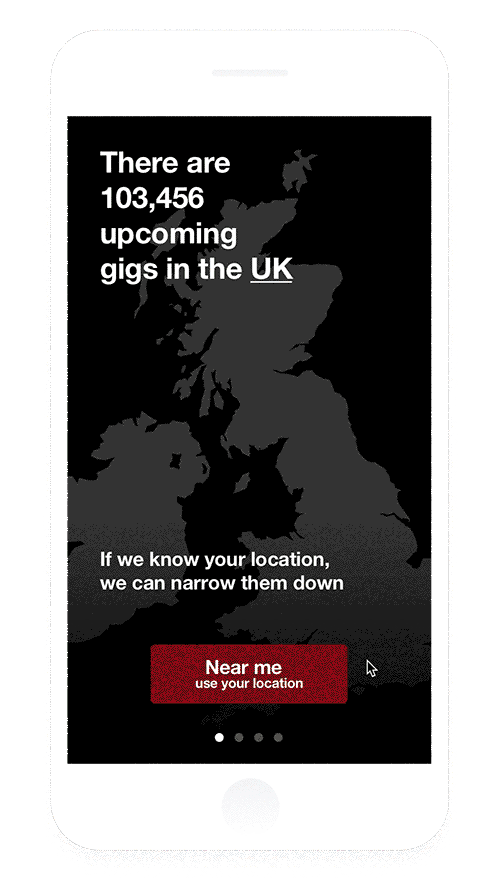
'Granular control' was a recurring theme amongst several Design Jam teams. Similarly to Oink, Fanfare came up with a solution allowing people greater control over their data, while clearly conveying the value exchange for doing so.
At its highest level, Fanfare could be used without sharing location, even though the service is challenging to provide without it. It's clear to see how adding location would greatly enhance the personalisation of the service but Fanfare gives a choice:
- 'Yes, all the time,'
- 'Yes, only when I'm in the app,' or
- 'No, continue without.'
These choices give people granular control and do not presume consent to gather location to be continuous. If the person is happy with the service over time, they may just select 'Yes, all the time,' in the future once trust is established.
